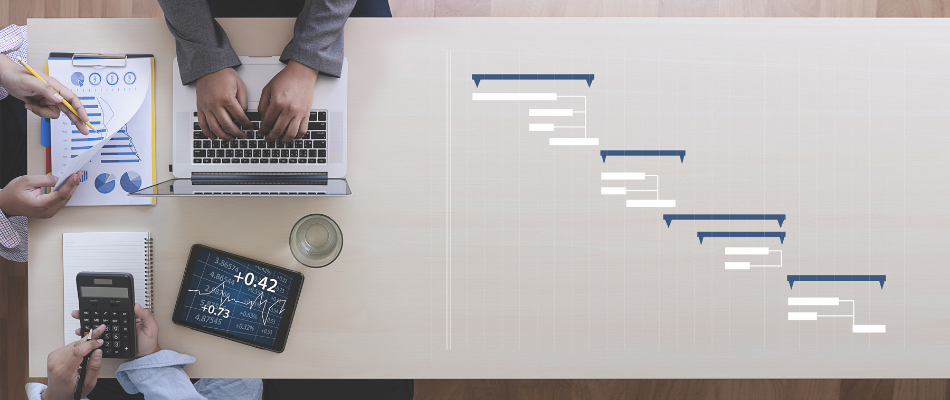Economists are experts who help us understand the economic forces that influence daily life and major policies. By examining how resources are created, distributed, and utilised, they provide essential insights into a wide range of economic issues, such as inflation, unemployment, and fiscal policy. These insights help governments, businesses, and communities make informed decisions for better economic stability and growth.
Economists use their data and analytical skills to address complex economic questions and forecast potential trends. As a result, they work in many places, from government offices and financial firms to research organisations.
In this article, we will explore the question, ‘What is an economist?’. We will also discuss their roles, types, skills required, and the impact of this profession on society.
Table of Contents
- What Is an Economist?
- What Does an Economist Do?
- Types of Economists and Their Specialisations
- What are the Skills and Qualifications Needed to Become an Economist?
- Where do Economists work?
- Key Tools and Methods Used By Economists
- Challenges Faced by Economists
- What Is the Highest Paying Job in Economics?
- Conclusion
- FAQs on What is an Economist?
What Is an Economist?
An economist is a professional who studies how resources are produced, shared, and used within a society. Their work focuses on understanding the balance between supply and demand and how it affects production, spending, and consumption. They look at different markets, from small local communities to entire countries and even the global economy.
So, if you are wondering, ‘What is an economist?’, you should know that they gather data, analyse trends, and apply economic theories to understand how the economy works. Their research shapes important decisions in areas such as government policies, business strategies, and international trade.
Also, read our article on Happiness Economics: The New Science of Well-Being and Prosperity
What Does an Economist Do?
Economists play a key role in analysing data and trends to understand how various factors impact the economy. Their insights are valuable across multiple sectors, from government and private companies to non-profit organisations. So, while understanding what an economist is, let us explore what is the job of an economist:
Below are the core responsibilities of economists:
- Conduct research on economic issues and trends
- Collect and analyse data from surveys, financial records, and other sources
- Use statistical models to forecast economic outcomes
- Interpret research findings to understand market and societal trends
- Provide insights to inform policy and business strategies
- Present findings through reports, charts, and presentations
- Advise government agencies, businesses, and individuals on economic matters
- Track spending patterns and consumer demand to help optimise profits
- Identify economic challenges and suggest potential solutions
- Publish articles or research on economic trends and forecasts
Types of Economists and Their Specialisations
Economists specialise in various areas to provide insight into specific aspects of the economy. These specialisations allow them to address issues unique to individual markets, national economies, and even global concerns. The following are some common types of economists and the areas they focus on:
- Microeconomists: These economists study individual markets, consumer behaviour, pricing, and competition. They focus on how people and businesses make buying and selling decisions, affecting prices and market trends.
- Macroeconomists: Macroeconomists look at the big picture of the economy. They study factors like national income, unemployment rates, inflation, and overall economic growth, helping shape policies to stabilise the economy.
- International Economists: International economists examine trade and economic policies between countries. They analyse global trade patterns, exchange rates, and policies that help countries work together economically.
- Financial Economists: Financial economists specialise in financial markets, such as investments and risk management. They study how money is invested in assets like stocks, bonds, and real estate, helping businesses and governments make informed financial decisions.
- Development Economists: Development economists focus on economic growth and poverty reduction in low-income countries. They work on improving access to education, healthcare, and jobs, aiming to lift living standards.
- Environmental Economists: These economists study the impact of environmental policies and how resources are used. They look at how regulations affect both the economy and the environment, helping to promote sustainable practices.
- Health Economists: Health economists focus on healthcare costs, insurance, and public health policies. They assess how changes in healthcare systems affect costs and access to medical care.
- Labour Economists: Labour economists focus on employment, wages, and factors that impact the workforce. They study trends in job markets, wages, and work conditions, helping to guide employment policies and training programmes.
What are the Skills and Qualifications Needed to Become an Economist?
To become an economist, a strong educational background in economics is essential, along with a set of key skills that help in analysing and communicating economic data and insights. So, as you explore what an economist is, you must also know their skills and qualifications.
Here, we will outline the educational path and skills required for an economist:
Educational Path For Economists
You should have the right qualifications to pursue a career as an economist. Here are the typical educational requirements to become an economist:
- Undergraduate Degree: Obtain a bachelor’s degree, majoring in economics, which typically takes three years. This can be part of a Bachelor of Social Science, Bachelor of Commerce, or Business Science degree.
- Honours Degree: Complete an honours degree in economics, typically an additional one-year programme, which is often available through the commerce faculty.
- Further Studies: For senior economist roles, a master’s degree in economics is highly beneficial and, in many cases, essential. Advanced roles may require even further study, such as a Ph.D. in Economics.
Key Skills Required For Economists
Economists need a combination of technical and analytical skills, as well as the ability to effectively communicate complex information. Below are some of the essential skills needed to outline what the role of an economist is:
- Strong analytical abilities to evaluate complex economic data and understand trends.
- Proficiency in statistical and mathematical skills for creating forecasts and economic models.
- Effective communication skills to present findings to both technical and non-technical audiences.
- Strong research skills to gather accurate information and interpret market data.
- Knowledge of economic theories and models to apply to real-world scenarios.
- Technical proficiency in using economic analysis software and tools.
- Ability to work with large datasets and extract meaningful insights.
- Strong interpersonal skills to collaborate with teams and stakeholders.
While exploring what an economist is, remember that certifications like the CFA (Chartered Financial Analyst) can benefit those specialising in financial economics, investment analysis, and financial markets. Though such certifications are not mandatory, they validate expertise in economic analysis and risk management, providing a competitive edge in the job market.
Read our article on Education For All: Access to the Kind of Education that Builds the Economy
Where do Economists work?
To those wondering ‘What is the work of an economist?’, you must know that economists can be found working in various industries. Many positions are available in both the public and private sectors. They typically work in office settings but may also collaborate with other experts or attend conferences.
So, while learning what an economist is, let us also find out the sectors in which they work. Below are the main sectors where economists commonly work:
- Government (Federal, State, and Local)
- Consulting Firms (Management, Scientific, and Technical)
- Research and Development
- Educational Institutions (Universities and Research Institutes)
- Private Companies (Finance, Insurance, and Business)
- International Organisations (e.g., UN, World Bank)
- Non-Profit Organisations (Policy Research and Advocacy)
Key Tools and Methods Used By Economists
While understanding what an economist is, you must know that they use various tools and methods to study data, create models, and predict economic trends. These tools help them understand how economies work and support decision-making in both the public and private sectors. Here are some key tools and methods used by economists:
- Economic Models: Economists use models such as supply and demand, Keynesian, and econometrics to understand and predict economic outcomes.
- Data Collection and Analysis: Economists gather data from surveys, census reports, financial records, and statistical software to analyse economic trends and patterns.
- Forecasting Techniques: Methods such as time series analysis and scenario analysis help economists predict future trends by examining past data and different possible future scenarios.
- Mathematical and Statistical Techniques: Economists use tools like regression analysis, probability, and sampling to test ideas, measure relationships, and make accurate economic predictions.
Challenges Faced by Economists
Despite their expertise, economists face challenges that can impact their findings’ accuracy and their recommendations’ effectiveness. So, as we understand what an economist is, let us also understand the key obstacles met by economists. Below are some of the key challenges economists encounter:
- Data Limitations: Gathering accurate and reliable data can be difficult, particularly in emerging or informal economies where information is often limited or unreliable.
- Predicting Economic Outcomes: The complexity of global markets and unpredictable events, such as natural disasters or financial crises, make it challenging to forecast economic outcomes accurately.
- Balancing Theory with Real-World Application: Economists often struggle to translate theoretical models into policies that can be effectively implemented. This is because real-world conditions are constantly changing, which makes applying these theories harder.
- Ethical Concerns: Economists must consider their policies’ unintended social impacts, such as increasing inequality or negatively affecting vulnerable groups.
- Public Misunderstanding: Communicating complex economic concepts to the general public in a clear and accessible way is a significant challenge, as economic findings are often misunderstood or misinterpreted.
What Is the Highest Paying Job in Economics?
Economics offers many career paths, some of which come with high salaries. If you enjoy working with data, numbers, and solving problems, a career in economics is fulfilling. So, while you explore what an economist is, understanding these jobs can help you make informed decisions about your future in economics.
The following are some of the highest-paying jobs in economics:
- Economist
- Business Analyst
- Market Research Analyst
- Accountant
- Data Analyst
- Research Assistant
- Policy Analyst
- Environmental Economist
- Statistician
Also, explore the Highest Paying Finance Jobs in South Africa
Conclusion
Economists play an essential role in understanding how the economy works and helping guide decisions that impact businesses, governments, and societies. By studying data and spotting trends, they help shape policies and strategies for growth and stability. So, while understanding what an economist is, you must know that their expertise is highly valued in various fields, from government to private companies. While becoming an economist requires strong education and analytical skills, it offers many career opportunities, especially in well-paying roles. As the world faces new economic challenges, the need for skilled economists will continue to grow, making it a rewarding career choice.
For more educational-related articles, explore Regenesys’s Reginsights page now!
FAQs on What is an Economist?
What is an economist?
An economist is a professional who studies how resources are produced, shared, and used within a society. They analyse economic data and trends to help guide decisions on policies and business strategies.
What is an economist’s salary?
According to Talent.com, as of October, the average salary of an economist in South Africa is R 2,664,000 per year. Their salary can vary based on experience, industry, and specific roles within the economy.
What is the job description of an economist?
Economists research economic issues, analyse data, create forecasts, and provide insights to inform policy, business strategies, and economic decisions. They also advise on consumer demand and economic trends.
What are the different types of economists?
Economists can specialise in fields like microeconomics, macroeconomics, international economics, financial economics, development economics, environmental economics, health economics, and labour economics.
What skills do you need to become an economist?
Economists need strong analytical, statistical, and research skills, as well as proficiency in economic theories, data analysis tools, and clear communication to present findings to diverse audiences.






